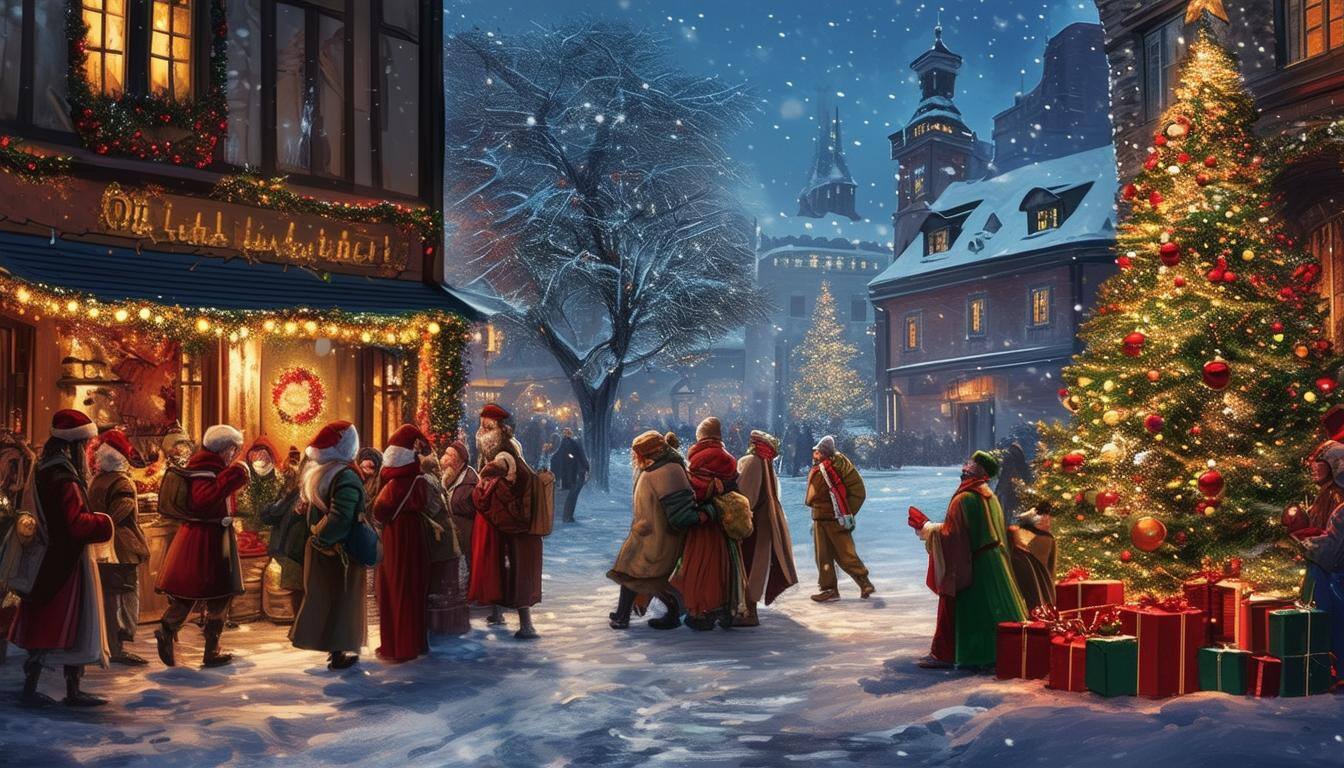Christmas and Translation: Connecting Cultures Through Words
Medical Pharmaceutical Translations • Dec 23, 2024 12:00:00 PM

The Christmas season is a time of joy, reflection, and connection—not just for individuals but across entire cultures. As a global celebration, Christmas carries unique traditions, practices, and languages, making it a fascinating topic for translators and language enthusiasts. In this article, we delve into the etymology of the word “Christmas,” explore its equivalents across different languages, and uncover how the spirit of the holiday transcends linguistic boundaries.
The Etymology of Christmas
The word “Christmas” originates from the Old English Crīstesmæsse, meaning "Christ’s Mass." First recorded in the 11th century, it combines "Christ" (from the Greek Christos, meaning "anointed one") and "mass" (a liturgical service). Over time, the term evolved into the Middle English Cristemasse and eventually became the modern "Christmas."
Interestingly, the abbreviation “Xmas” also has historical roots, often mistakenly thought to be a secular shorthand. The “X” comes from the Greek letter Chi (Χ), the first letter of Christos. Thus, “Xmas” has been used as a Christian abbreviation since the 16th century.
Christmas Across Languages
Translating "Christmas" reveals a treasure trove of linguistic diversity. Here are a few examples:
-
Spanish: Navidad, derived from the Latin nativitas, meaning “birth.” This directly ties to the celebration of the birth of Jesus Christ.
-
French: Noël, from the Old French noël and the Latin natalis ("birth" or "relating to birth").
-
German: Weihnachten, meaning "holy nights," emphasizes the sacred and reflective aspects of the holiday.
-
Italian: Natale, similar to Spanish, stems from natalis.
-
Dutch: Kerstmis, closely related to "Christmas," reflects the same Old English roots.
-
Japanese: クリスマス (Kurisumasu), a phonetic adaptation from English, showcases how non-Christian cultures often borrow terms directly.
-
Finnish: Joulu, rooted in ancient Yule traditions, represents the blending of pre-Christian and Christian practices.
-
Swedish: Jul, also derived from Yule, highlights the Scandinavian winter solstice traditions merged with Christmas.
-
Russian: Рождество (Rozhdestvo), meaning "Nativity," directly ties to the birth of Christ and has a deeply Orthodox Christian context.
-
Greek: Χριστούγεννα (Christougenna), meaning "Christ’s birth," reflects the Greek Orthodox emphasis on the holiday’s spiritual significance.
Each language reflects cultural nuances, whether through religious connotations, linguistic adaptations, or historical influences.
Cultural Variations in Christmas Translation
While the word for Christmas varies, so do the associated traditions. These differences pose intriguing challenges for translators. For example:
-
Symbols and Traditions: In English-speaking countries, Santa Claus is central, but in Spain, children eagerly await the Reyes Magos (Three Wise Men) on January 6. Translating a story about Christmas requires understanding these cultural contexts.
-
Idiomatic Expressions: Phrases like "Merry Christmas" might translate directly as Feliz Navidad in Spanish but require cultural adjustments in languages where Christmas greetings differ, such as German (Frohe Weihnachten) or Polish (Wesołych Świąt).
-
Songs and Literature: Translating Christmas carols or poems often involves balancing literal meaning with rhythm, rhyme, and cultural relevance. Consider the German carol O Tannenbaum, which translates to "O Christmas Tree." Its lyrics emphasize faithfulness, a theme sometimes altered to resonate with non-German audiences.
Universal Themes
Despite linguistic and cultural differences, the essence of Christmas—generosity, family, and hope—remains universal. Translators play a pivotal role in bridging these divides, ensuring the message of the holiday reaches hearts worldwide.
Christmas is more than a celebration; it’s a linguistic and cultural phenomenon that showcases humanity’s interconnectedness. From its etymological roots to its diverse expressions across the globe, the holiday reminds us of the power of words to unite and inspire. This Christmas, let’s celebrate not only the traditions we hold dear but also the rich tapestry of languages and cultures that make the season truly special.
